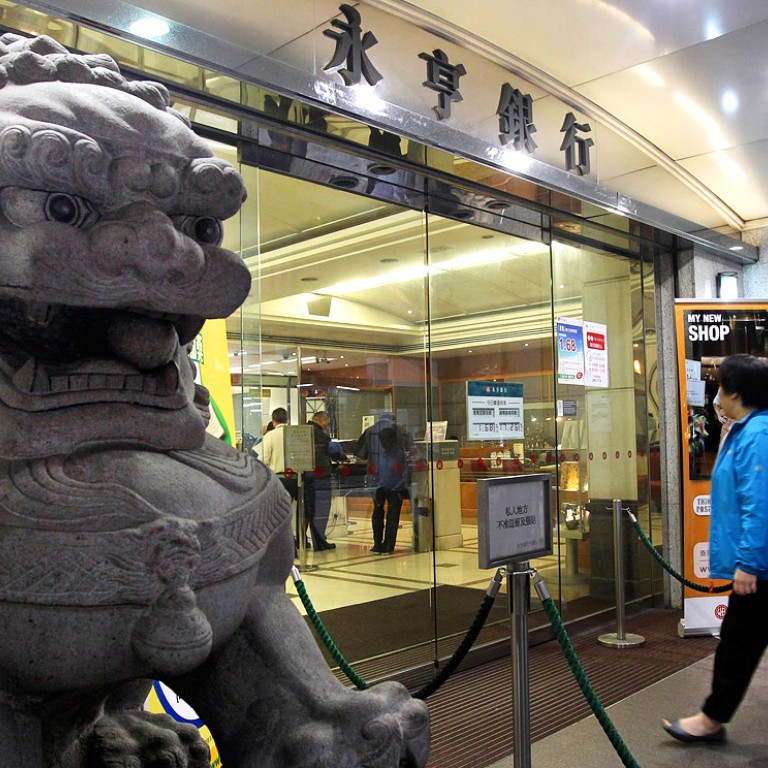
Singapore's OCBC wraps up takeover of Wing Hang Bank
The Singaporean bank secures 97.5pc of the Hong Kong lender, despite market concerns over low valuation for the HK$38.4 billion acquisition
Singapore's Oversea-Chinese Banking Corp completed its buyout of Wing Hang Bank yesterday for HK$38.4 billion and now plans to take the Hong Kong lender private.
OCBC, Southeast Asia's second-largest bank, now owns 97.52 per cent of Wing Hang, the banks said in a joint statement filed with the Hong Kong stock exchange. The city's regulations require at least 90 per cent ownership to delist.
OCBC has slowly edged up its stake in its target this month. Last week, it increased its stake by almost 11 percentage points to 67.8 per cent, filings with the Securities and Futures Commission showed. OCBC had 56.9 per cent on July 17, up 6.5 percentage points since July 4.
Yesterday was the deadline for Wing Hang to accept OCBC's HK$125 per share offer. Wing Hang closed down nearly 2 per cent. The announcement was made after the market close. Earlier this month, some minority shareholders of Wing Hang raised concerns that the deal was undervalued.
The offer for the bank, launched in April, had been accepted by 50.4 per cent of the shareholders, including the family of Wing Hang's chairman Patrick Fung Yuk-bun and Bank of New York Mellon. Billionaire Paul Singer's Elliott Capital said at the time that it raised its stake in Wing Hang, which Mizuho Securities Asia said could have pressured OCBC to raise its offer price.
Asked if OCBC might be forced to raise its offer, Samuel Tsien, OCBC chief executive, had rejected those market concerns over low valuation at the time.
The deal will reduce OCBC's tier-1 capital ratio to 11 per cent from 14.5 per cent.
Rating agency Fitch Ratings placed OCBC on negative watch in April, citing higher potential exposure to China, after the bank announced the takeover.
OCBC said the acquisition would boost its profitability by 2017 and it planned to fund the purchase from internal resources and by raising debt and equity capital.
After the Wing Hang deal, "China definitely has the potential to become one of the top three markets in terms of profit contributions to the OCBC group", Shanghai-born Tsien told the in June.
OCBC is the second Singaporean bank to gain a foothold in the city following DBS, Southeast Asia's largest lender, which paid US$5.4 billion for Dao Heng Bank in 2001. However, DBS suffered from at least S$2.1 billion (HK$13.1 billion) in write-downs after the purchase.
Tsien, the former chief executive of China Construction Bank's Hong Kong subsidiary, China Construction Bank (Asia), had said the acquisition would immediately lift China's contribution to group earnings to 16 per cent, from 6 per cent, with that contribution rising as Wing Hang's integration progresses.
"The flow [between North and Southeast Asia] we currently see - a US$600 billion trade flow and a US$11 billion investment flow in 2013 alone - is a big market which only regional banks will be able to tap into," Tsien said when the offer was made in April.
